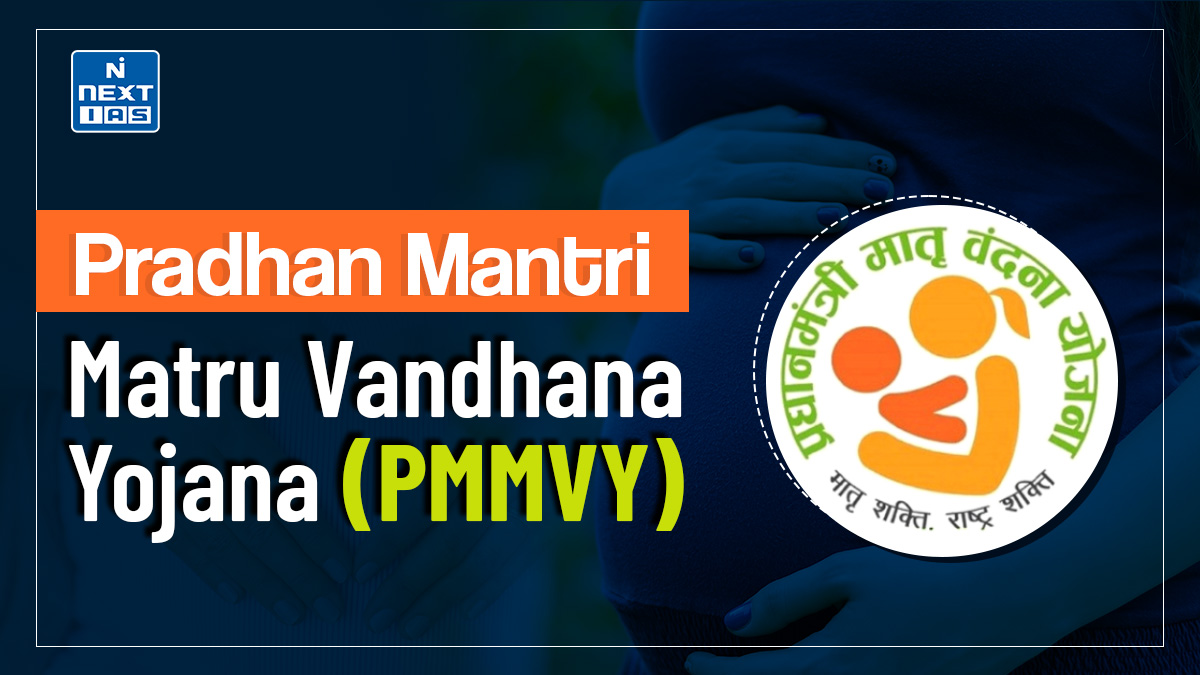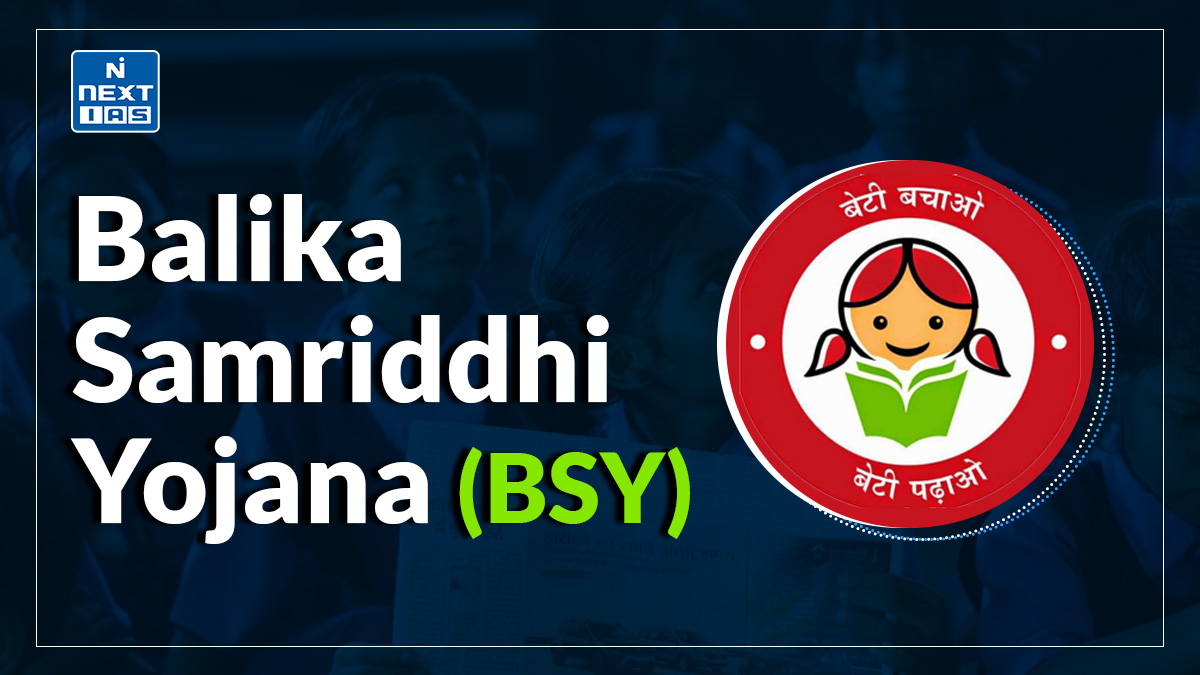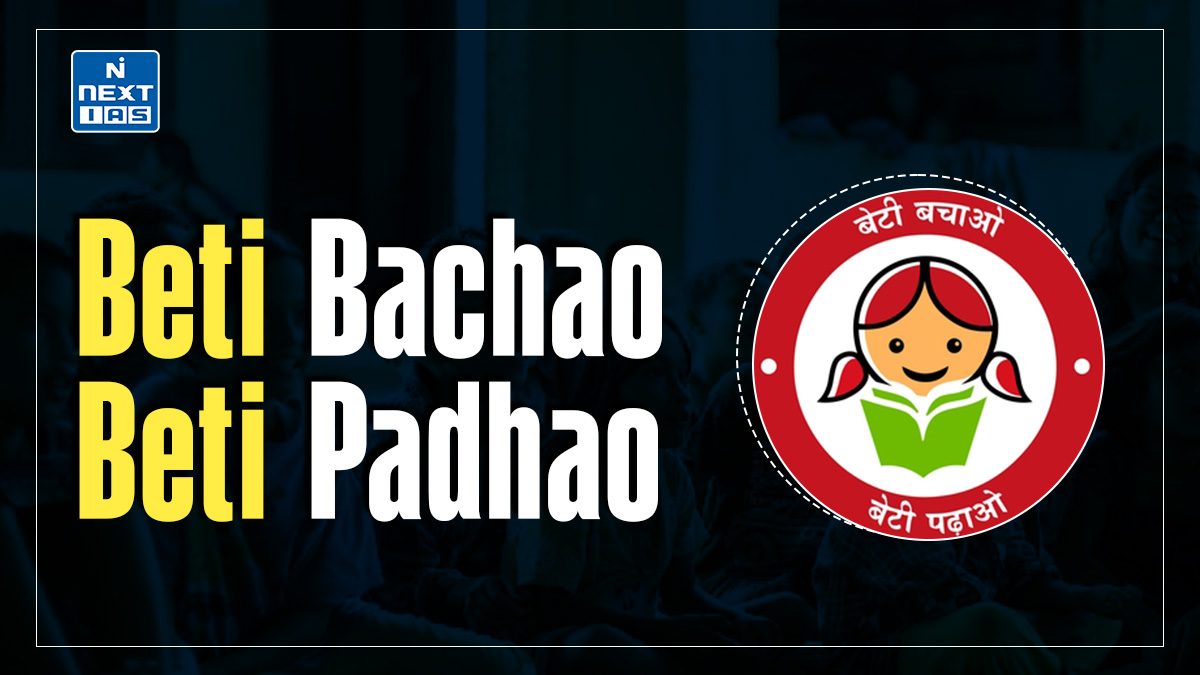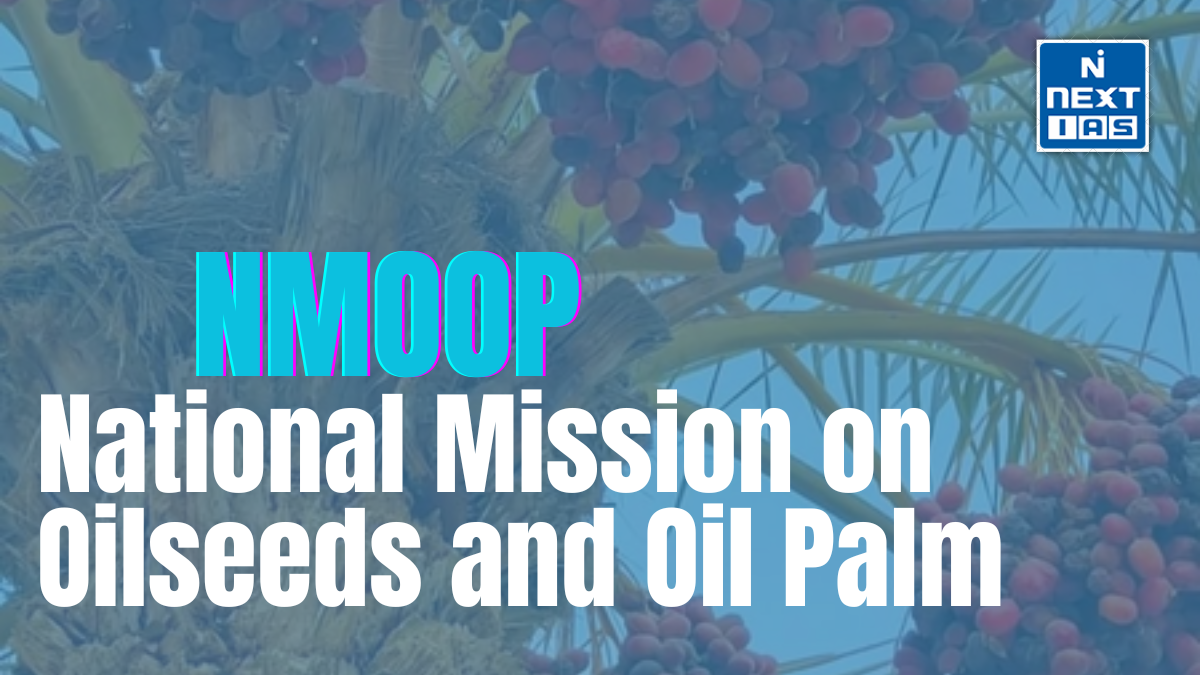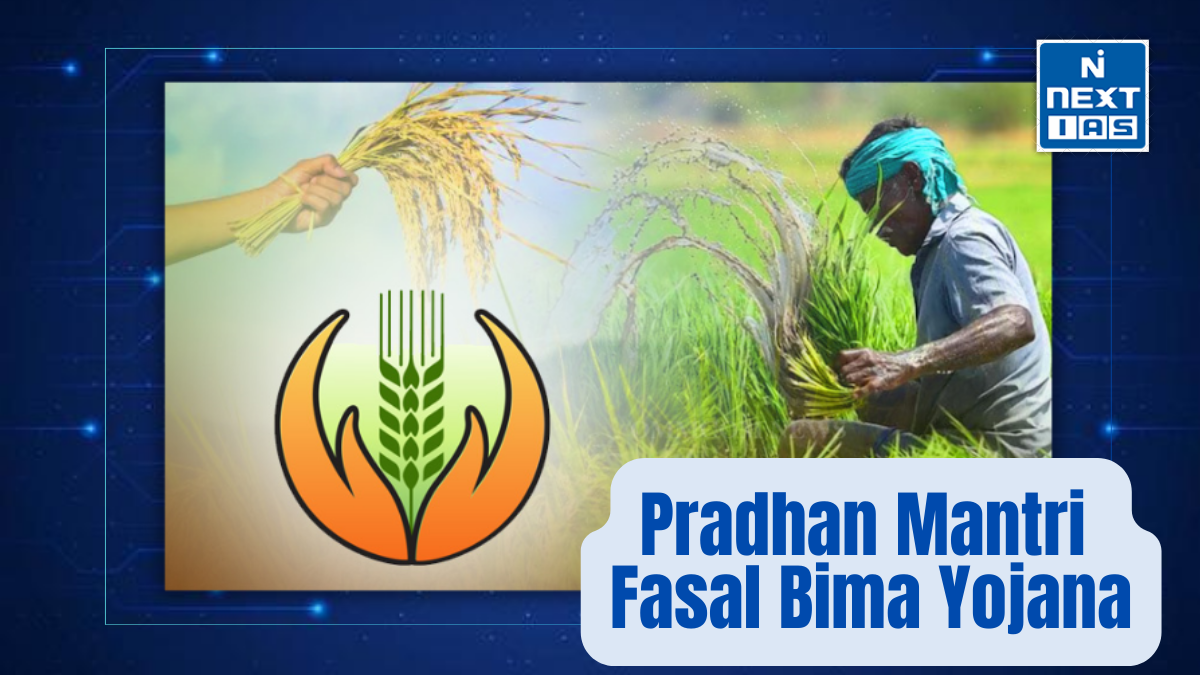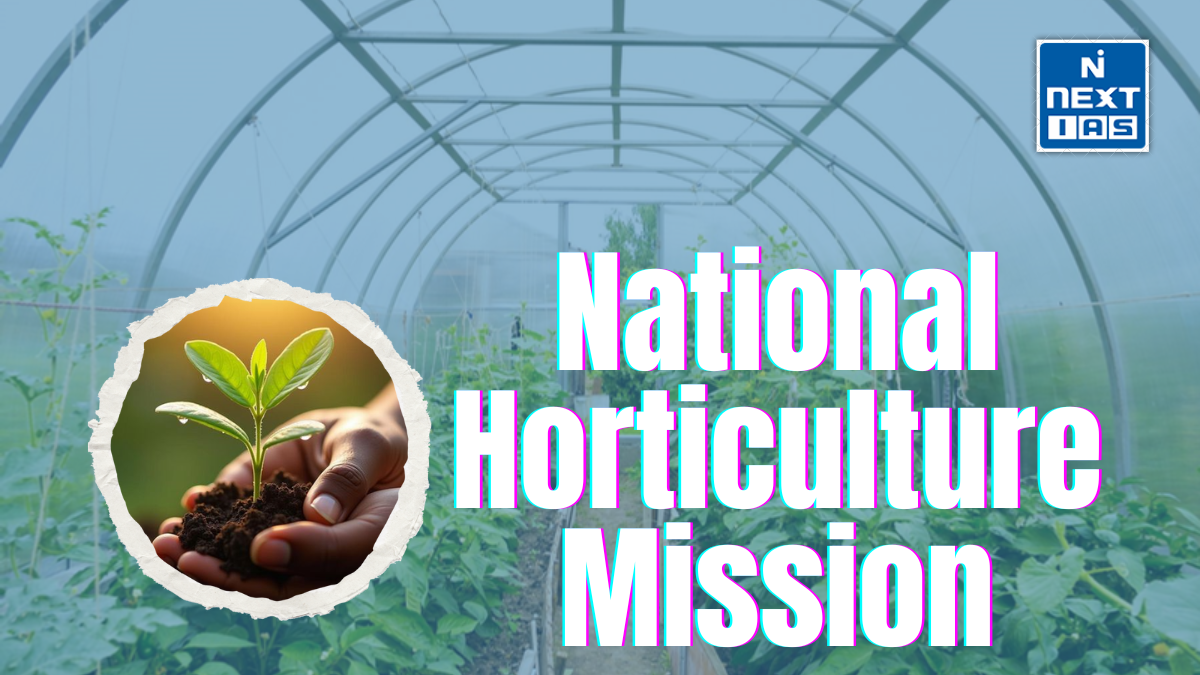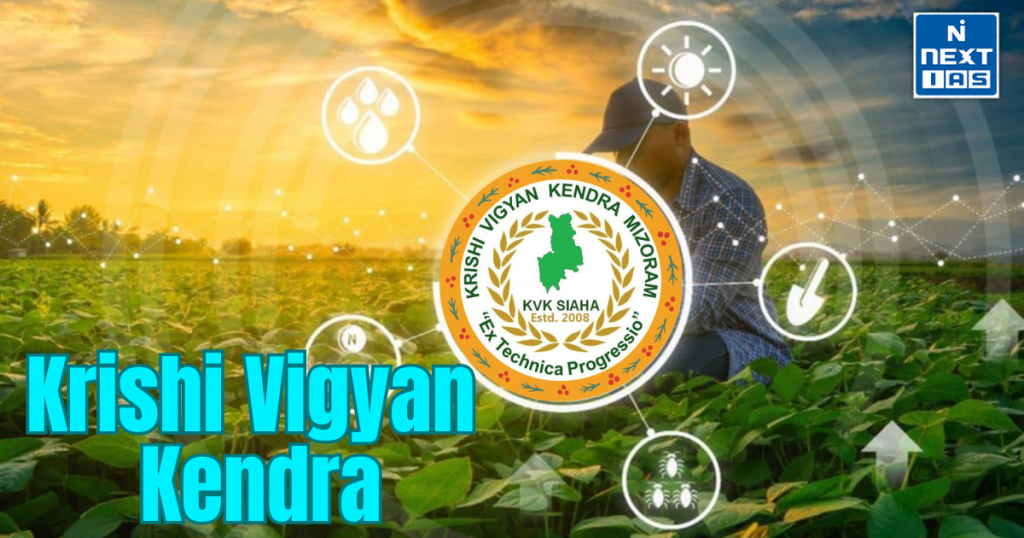
Krishi Vigyan Kendra (KVK) is an agricultural extension initiative under the Indian Council of Agricultural Research (ICAR). Established as district-level institutions, KVKs aim to transfer innovative agricultural technologies to farmers through training, demonstrations, and advisory services, fostering rural development, sustainable farming practices, and enhanced productivity across India.
About the Krishi Vigyan Kendra (KVK)
- Krishi Vigyan Kendra (KVK) is a district-level agricultural extension institution established by the Indian Council of Agricultural Research (ICAR) to bridge the gap between research and farmers.
- Introduced in 1974, KVKs aim to transfer agricultural technologies, empower farmers, and enhance productivity while promoting sustainable farming practices.
- KVKs provide need-based, location-specific training to farmers, rural youth, and extension workers, focusing on crop production, animal husbandry, horticulture, fisheries, and agro-forestry.
- They also conduct frontline demonstrations of innovative technologies and provide on-farm trials to validate research outcomes under local conditions.
- Each KVK serves as a knowledge hub, offering advisory services on pest management, soil health, climate-resilient farming, and post-harvest technologies.
- With over 700 KVKs across India, they play a critical role in achieving food security, increasing rural incomes, and promoting the adoption of modern farming methods tailored to regional needs.
Features of the Krishi Vigyan Kendra (KVK)
- Farm Science Center: KVK functions as a district-level center for agricultural research and extension, addressing region-specific farming needs and challenges.
- Technology Transfer: It disseminates the latest agricultural technologies and innovations from research institutes to farmers for better productivity and sustainability.
- Capacity Building: KVK organizes training programs for farmers, farm women, rural youth, and extension workers, focusing on skill development and modern agricultural practices.
- On-Farm Testing (OFT): Conducts trials of new technologies and crop varieties on farmers’ fields to assess their adaptability under local conditions.
- Frontline Demonstrations (FLD): Demonstrates proven technologies and practices directly on farmers’ fields to showcase their effectiveness.
- Resource Hub: KVK serves as a resource and knowledge center for agriculture, offering advisory services, soil and water testing, seed production, and farm mechanization support.
- Multidisciplinary Approach: Covers various sectors like crop production, horticulture, livestock, fisheries, and agroforestry, ensuring a holistic approach to farming.
- Emphasis on Sustainability: Focuses on organic farming, integrated pest management, water conservation, and climate-resilient practices.
- Entrepreneurship Development: Promotes agri-business and rural entrepreneurship by training farmers in value addition, marketing, and small-scale enterprises.
- Community Engagement: Acts as a bridge between research institutions and farming communities, fostering a participatory approach to rural development.
By empowering farmers with knowledge and skills, KVKs significantly contribute to rural livelihood improvement and sustainable agricultural growth.
Objectives of the Krishi Vigyan Kendra (KVK)
The Krishi Vigyan Kendra (KVK) aims to bridge the gap between agricultural research and its practical application by farmers. Its objectives focus on enhancing productivity, sustainability, and rural livelihoods through the effective transfer of knowledge and technologies.
- Technology Assessment and Demonstration:
- KVKs assess, refine, and demonstrate location-specific agricultural technologies for suitability in diverse agro-climatic conditions.
- Field trials are conducted to adapt innovations to local needs.
- Skill Development and Capacity Building:
- Impart vocational training to farmers, rural youth, and extension workers on modern agricultural techniques, livestock management, and value addition.
- Build human resources to support the rural agricultural economy.
- On-Farm Testing (OFT):
- Evaluate technologies in real farming conditions to address specific challenges faced by farmers and ensure practical adoption.
- Frontline Demonstrations (FLDs):
- Showcase the effectiveness of advanced crop varieties, practices, and technologies to encourage adoption by farmers.
- Dissemination of Knowledge:
- Provide advisory services on issues like pest management, soil health, water conservation, and climate-resilient farming.
- Facilitate access to the latest agricultural research and tools.
- Promote Sustainable Agriculture:
- Encourage environmentally friendly practices, organic farming, and resource conservation for long-term agricultural sustainability.
- Support Allied Sectors:
- Focus on fisheries, animal husbandry, horticulture, and other sectors to diversify and strengthen rural incomes.
By integrating research, education, and extension, KVKs act as a vital link to empower farmers, promote innovation, and enhance agricultural productivity and rural livelihoods.
Significance of the Krishi Vigyan Kendra (KVK)
The Krishi Vigyan Kendra (KVK) is a cornerstone of India’s agricultural extension system, significantly contributing to rural development and farming advancements. Established under the Indian Council of Agricultural Research (ICAR), KVKs serve as district-level institutions dedicated to promoting sustainable agricultural practices, improving productivity, and uplifting farmers’ livelihoods.
- Technology Transfer: KVKs bridge the gap between agricultural research institutions and farmers by transferring innovative technologies and practices directly to the field.
- Skill Development: They conduct need-based training programs for farmers, rural youth, and extension workers, focusing on modern farming techniques, entrepreneurship, and allied activities like livestock management and value addition.
- Farm Demonstrations: KVKs organize on-farm trials and frontline demonstrations, showcasing the effectiveness of new crop varieties, farming methods, and technologies, ensuring practical learning.
- Advisory Services: They provide farmers with real-time solutions for pest control, crop management, and climate-related challenges, enhancing resilience and productivity.
- Integrated Approach: KVKs emphasize integrated farming systems, organic farming, and sustainable practices to address resource constraints and environmental concerns.
- Farmer Empowerment: By fostering self-reliance through scientific knowledge, KVKs help farmers adopt cost-effective methods, reduce risks, and improve incomes.
Overall, KVKs play a vital role in modernizing Indian agriculture, empowering farmers with knowledge, and driving rural transformation. Their localized approach ensures targeted interventions, contributing to the nation’s food security and agricultural sustainability.
Lacunae of the Krishi Vigyan Kendra (KVK)
The Krishi Vigyan Kendras (KVKs), while instrumental in promoting agricultural advancements, face several lacunae that hinder their effectiveness:
- Resource Constraints: Many KVKs lack adequate financial resources, infrastructure, and modern equipment to deliver quality training and demonstrations. Insufficient funds limit their ability to expand outreach and adopt new technologies.
- Limited Staff and Expertise: A shortage of skilled professionals and technical staff often results in reduced efficiency. The absence of specialists in emerging fields like precision farming, climate-resilient agriculture, and digital technologies restricts KVKs from addressing modern challenges.
- Outdated Technology: KVKs sometimes fail to adopt or disseminate cutting-edge agricultural practices and tools due to slow updates in research-extension linkages, leaving farmers reliant on outdated methods.
- Lack of Awareness among Farmers: Many farmers, especially small and marginal ones, are unaware of the existence and services offered by KVKs. This limits the reach and impact of their programs.
- Inadequate Coordination: Poor coordination between KVKs, local governments, and other agricultural institutions results in duplication of efforts and weak implementation of development programs.
- Monitoring and Evaluation Gaps: There is limited emphasis on tracking the long-term impact of KVK initiatives. A lack of performance metrics often leads to inefficiencies in program delivery.
- Connectivity Issues: In remote areas, limited digital and physical connectivity reduces farmers’ access to KVK services, undermining their role as effective knowledge hubs.
Addressing these lacunae through enhanced funding, capacity building, and better integration with technology and stakeholders is crucial for KVKs to achieve their full potential in transforming Indian agriculture.
Key pointers on Krishi Vigyan Kendra (KVK) for UPSC CSE Prelims
- Establishment: Launched in 1974 under the Indian Council of Agricultural Research (ICAR).
- Purpose: Act as district-level institutions for the dissemination of agricultural innovations to farmers.
- Coverage: Present in every district of India, with over 700 KVKs functioning.
- Functions: Conduct on-farm testing, frontline demonstrations, farmer training, and advisory services.
- Focus Areas: Improved crop production, livestock management, organic farming, and climate-resilient technologies.
- Target Audience: Farmers, rural youth, and extension workers.
- Technology Dissemination: Promotes need-based, location-specific technologies for sustainable farming.
- Skill Development: Offers vocational training to empower rural youth and farmers for self-employment.
- Funding: Fully funded by ICAR, functioning as autonomous units under agricultural universities or ICAR institutes.
- Significance: Bridges the gap between research and field application, enhancing productivity, income, and rural livelihoods.
Way Forward
To strengthen Krishi Vigyan Kendras (KVKs), focus should be on increasing funding, adopting modern technologies like AI and IoT, and expanding outreach through digital platforms. Collaboration with private sectors and NGOs can enhance efficiency. Regular capacity building, monitoring, and tailored programs for local needs will ensure sustainable agricultural development and farmer empowerment.
Conclusion
Krishi Vigyan Kendras (KVKs) play a vital role in bridging the gap between agricultural research and field implementation. By promoting innovative, location-specific technologies, skill development, and sustainable practices, KVKs empower farmers, enhance productivity, and contribute to rural development, ensuring long-term food security and agricultural growth in India.
